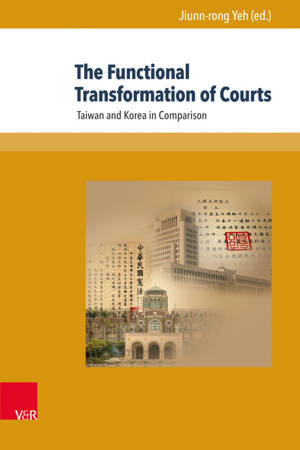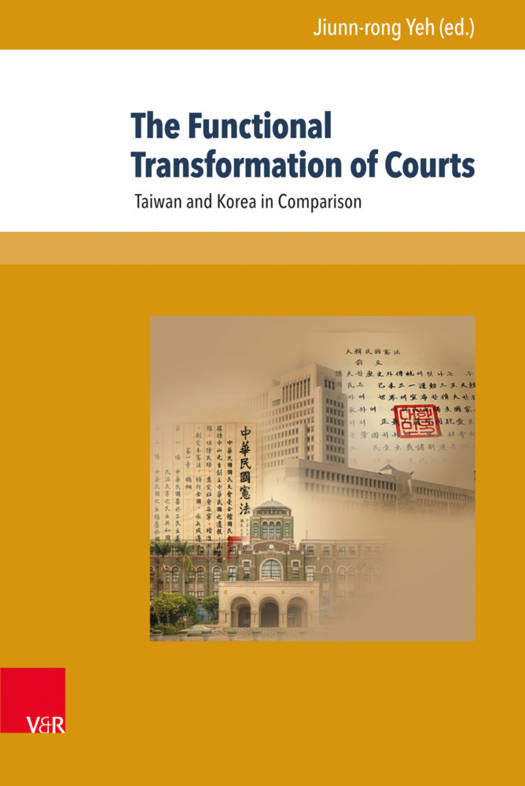
Bedankt voor het vertrouwen het afgelopen jaar! Om jou te bedanken bieden we GRATIS verzending (in België) aan op alles gedurende de hele maand januari.
- Afhalen na 1 uur in een winkel met voorraad
- In januari gratis thuislevering in België
- Ruim aanbod met 7 miljoen producten
Bedankt voor het vertrouwen het afgelopen jaar! Om jou te bedanken bieden we GRATIS verzending (in België) aan op alles gedurende de hele maand januari.
- Afhalen na 1 uur in een winkel met voorraad
- In januari gratis thuislevering in België
- Ruim aanbod met 7 miljoen producten
Zoeken
The Functional Transformation of Courts
Taiwan and Korea in Comparison
€ 109,95
+ 219 punten
Omschrijving
The global expansion of judicial powers makes no exception to Asia. Most noticeable is the judicial expansion in tandem with unprecedented political and legal reforms that have occurred in the two Asian new democracies - Taiwan and South Korea. Having shared a great deal of similarities in colonial legacy, economic development and global competition, both Taiwan and South Korea became good examples of fast-growing economies with successful democratic transitions. In the context of transition, Courts in Taiwan and Korea are expected to independently resolve disputes to place checks and balances with political powers and safeguard individual rights and freedoms. This book looks into court's function in constitutional, regulatory, civil, commercial, and criminal matters by making Taiwan and Korea in comparison.
Specificaties
Betrokkenen
- Uitgeverij:
Inhoud
- Aantal bladzijden:
- 302
- Taal:
- Engels
- Reeks:
- Reeksnummer:
- nr. 3
Eigenschappen
- Productcode (EAN):
- 9783847104902
- Verschijningsdatum:
- 18/11/2015
- Uitvoering:
- Hardcover
- Formaat:
- Genaaid
- Afmetingen:
- 159 mm x 236 mm
- Gewicht:
- 40 g

Alleen bij Standaard Boekhandel
+ 219 punten op je klantenkaart van Standaard Boekhandel
Beoordelingen
We publiceren alleen reviews die voldoen aan de voorwaarden voor reviews. Bekijk onze voorwaarden voor reviews.








